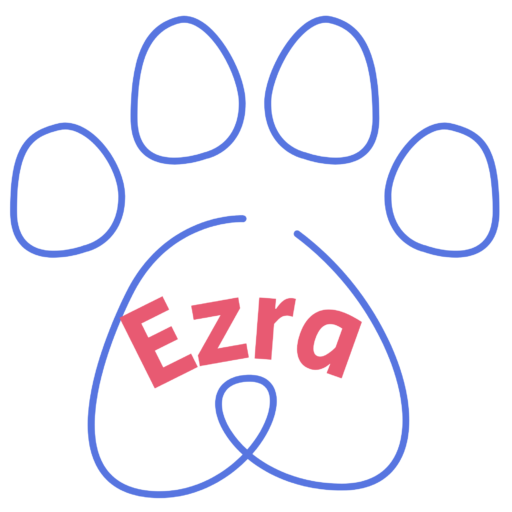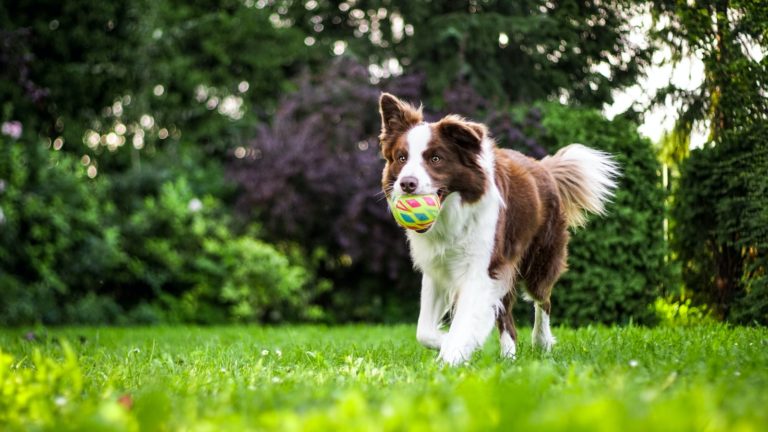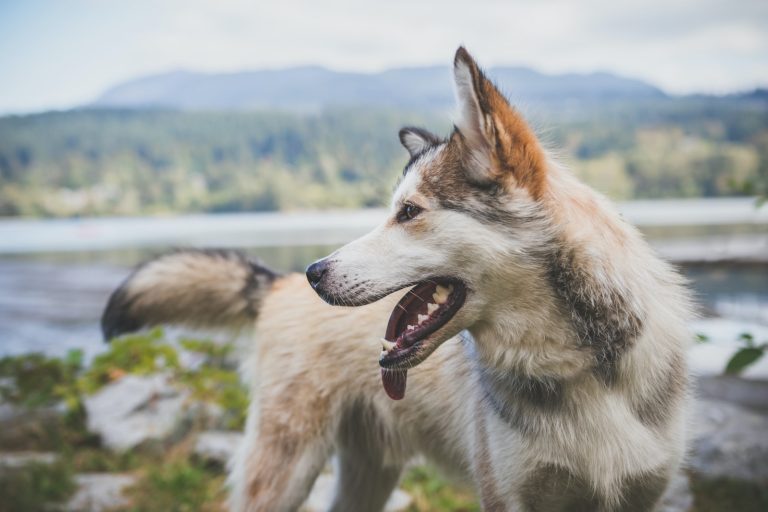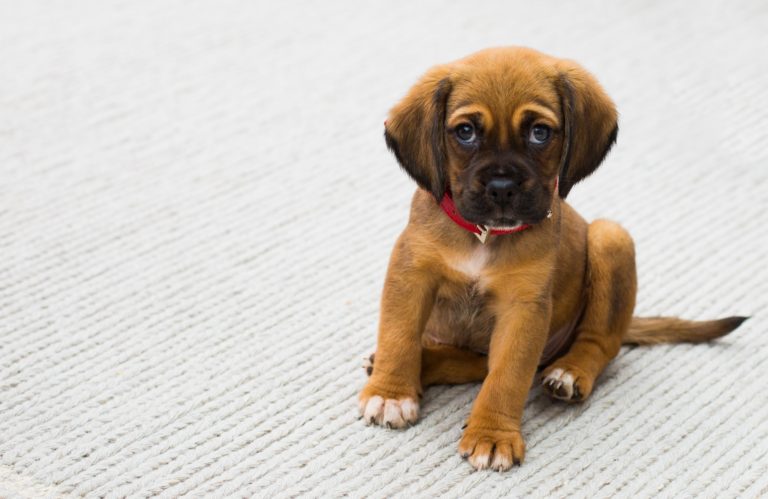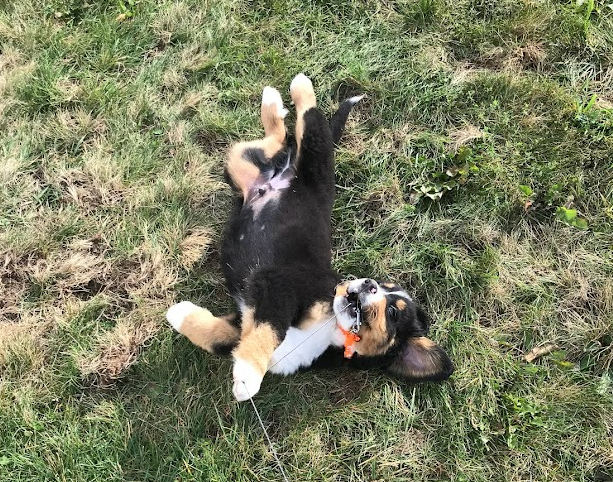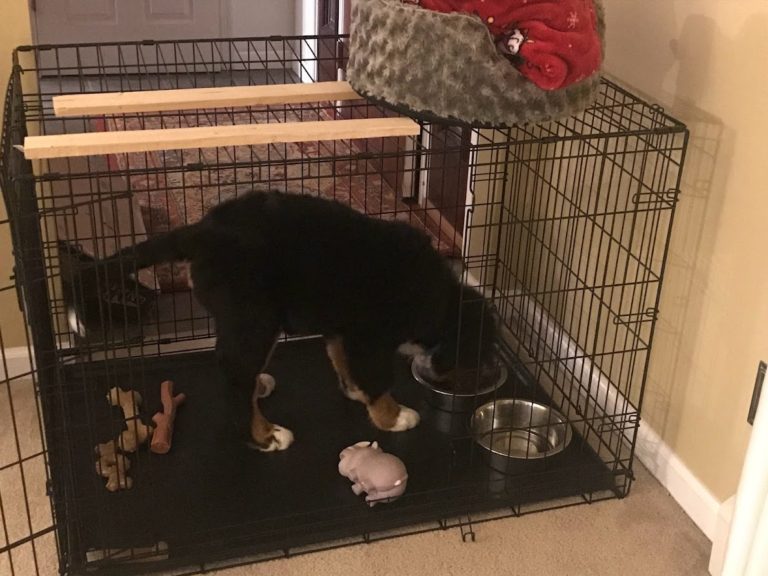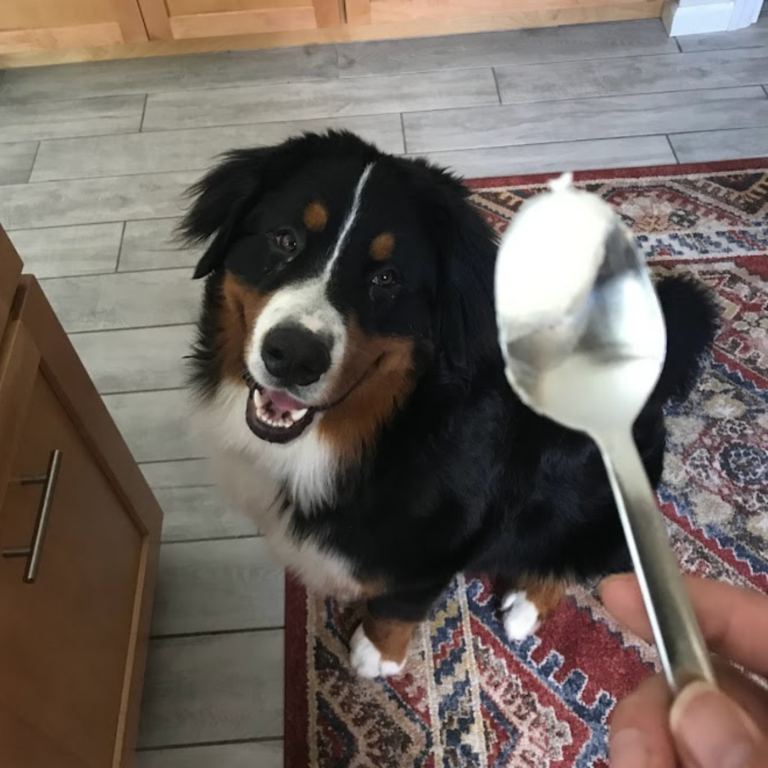59 Tips for First Time Dog Owners from 155 Dog Owners [2023]
Whether you are a first time dog owner or not, getting a dog is a wild ride. You may have done a lot of research on the right dog for you. You probably bought all the items you’re heard from friends and family you need for a new puppy. You’re also probably really excited for furry ball of cuteness you’re about to bring home. But regardless of excited you are or how much you’ve purchased or prepped, it’ll be a learning curve.
I was reflecting with a friend recently about what we wish we knew when we brought home puppies. That inspired me to reach out to other dog owners to pull together top advice for bringing home your first puppy. Some of this you may already know. But just in case you’re looking for advice, I gathered it from 155 different dog owners to share with you below.
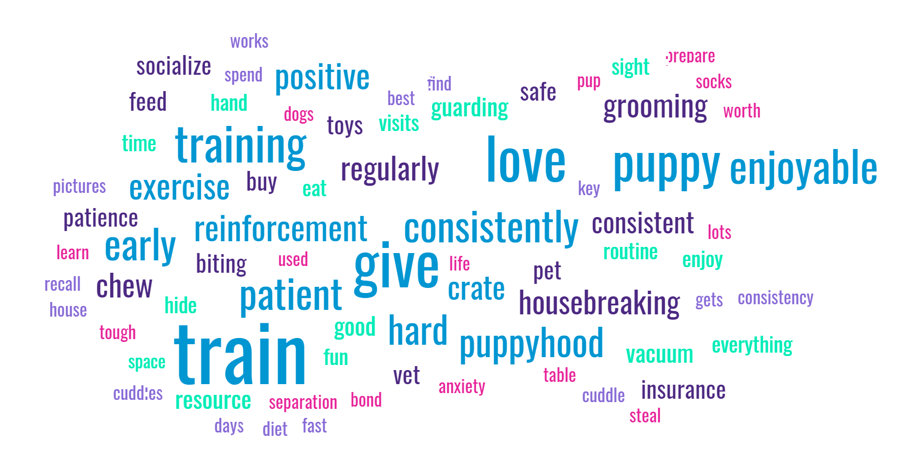
What is so difficult about dog ownership?
Dog ownership is difficult because they are basically dependents without a tax credit. In some ways they are similar to children –
- You have to feed them breakfast, lunch, and dinner.
- You need to potty train them.
- You need to learn how to communicate with them.
- You need to teach them good manners.
All of this requires adjusting from your current routine to match your dog’s so that you can raise them into healthy, happy, well-mannered adults.
Unlike children, they become adults way earlier (between 8 months and 2 years old) so they mature faster. They are also generally cheaper because they don’t require education or other discretionary expenses like hobbies, prom, vacations.
Why is dog ownership so hard?
It all starts with evaluating your life and what you value and then researching which dog matches your lifestyle. Most people find dog ownership hard because they didn’t do that preparation, or they under-estimated how long it takes to train a dog. Some of the best preparation you can do is even before you pick out a dog: research different dog breeds.
The reason that is so crucial is because each dog is a little bit different in terms of behavior and care. Some have high energy and need lots of exercise. Some are aloof and don’t like strangers. Others have high grooming needs or are susceptible to a lot of diseases, which adds to potential costs of owning your dog. You’ll set yourself up for success by picking a dog that matches to your lifestyle, and not just which one you think looks the prettiest or cutest.
It’s so important to research dog breeds to find one that matches your lifestyle, or you may regret having a dog.
59 Best Tips for First Time Dog Owners
Of course, your probably have talked to a lot of friends who own dogs and got some advice from them. In case you don’t have a lot of dog owning friends, I compiled advice from 155 dog owners by asking the question: what would be your advice for a first time dog owner? Many of them had more than one piece of advice that spans different categories. Each piece of advice was then categorized it into a high level topic.

This section will dive into each category to surface the top tip themes for first time dog owners to consider when they prepare to bring home a puppy or try to survive puppyhood.
Tips to train your puppy
This was by far the largest tip count category with 108 tips (38.3%). I broke these down into 5 further subtopics to give context to what types of advice seasoned dog owners have for first time dog owners.

Begin training right away and stay consistent
- Feed your dog directly from your hand for the first few days after bringing him home
- Then feed meals in his crate or begin training for basic skills.
- Remember, repeat each command the same way because dogs learn from repetition.
The main goal is to get your puppy acclimated to his new home and establish a good routine. In the beginning, feed your puppy by hand. This will help to build trust between you and your new charge. Once he’s comfortable enough to eat freely, put meals in his crate, or begin using meal time for training various skills, like his name, being comfortable alone, getting familiar with a leash, or work on socialization.
When you are ready to start training, remember that dogs learn by repetition. They are creatures of habit. This means that when you begin training, repeat the command the same way each time. This includes the words you say, your body language when you say it, how you reinforce the behavior, and when you reinforce the behavior.
Socialize
- Safely introduce your puppy to as many places as possible so he grows into a confident and well-adapted dog.
- Be mindful of your puppy’s vaccination records before introducing to a new place to avoid disease.
- You can have your dog meet other healthy, fully vaccinated adult dogs or healthy puppies.
- Train your dog to be comfortable with grooming, vet visits, and teeth brushing.
Socializing dogs is quite different than humans socializing. The goal of dog socialization is to introduce them to as many experiences as possible so that they are a confident and well-adapted adult. This means to bring them on car rides, ride the elevator and escalator, go to stores, meet people with beards, on crutches, in wheelchairs, motorcycles, etc.
There are so many experiences your dog can have to help them be a more relaxed adult. The goal is to safely introduce them to unfamiliar places from a young age. For example, don’t bring your dog on a romp in the woods or in un-mowed fields until they are fully vaccinated against Lyme disease. You can have your dog meet other healthy, fully vaccinated adult dogs or healthy puppies. Avoid walking through fields or pavement that has feces.
You also want to train your dog to become comfortable with getting groomed, visiting the vet, or brushing their teeth. You can do this in small steps. For example, feed your dog in your left hand while you touch his paw with your right hand. Work up to holding his paw while you are feeding him. This will make him more comfortable to eventually getting his nails trimmed. You can do similar things with checking his ears, his teeth, and under his tail.
Focus on Basic Training
- Don’t feed from the table or any other place you normally eat.
- Train to prevent separation anxiety.
- Train for resource guarding.
- Teach your dog to sit politely for greetings.
You want your dog’s meal times to be training sessions where you feed him directly from your hand. You don’t want to feed your dog food from anywhere you eat to avoid begging, especially if you feed your dog human food like chicken or cheese. This includes the table, your desk, your couch, etc. In the beginning, you may need to crate your dog in a different room than where you are eating to avoid begging or counter surfing. That’s a good idea to do, because it will also help with training against separation anxiety. Be sure to leave your dog with a favorite toy or a frozen Kong to keep him busy.
Resource guarding is when your puppy doesn’t want to give up a toy, food, or is protective of his people. You want to watch out for signs of resource guarding at an early age so you can train to mitigate it. Signs include tensing their muscles, raising their hackles, growling, barking, or hunching over the resource.
Sitting for greetings is not exactly basic to teach – you really should teach heel and sit first. But, it’s considered basic training because it’s teaching your dog manners. You don’t want your dog to lunge at strangers and potentially hurt them.
After teaching your dog heel and sit, you can teach your dog how to sit calmly for greetings.
Give Positive Reinforcement
- Reward good behavior with treats. Never use corporal punishment.
- Any time your puppy goes to the bathroom outside successfully, give your dog a treat.
- Puppies may not understand being scolded because they don’t understand emotions yet.
- Rewarding good behavior with treats will help reinforce the behavior because they will learn that behaving that way will result in treats.
Young puppies are generally very happy and energetic. They respond to high energy and exciting things. One of the reasons people do not recommend yelling at puppies or scolding them is because they will view that as high energy and exciting. They don’t understand emotions yet and it may not register with them that you are mad, so they may continue doing the bad behavior. Instead, you want to reinforce good behavior by giving them treats when they behave well. It will require lots of repetition – thousands of times – until the dog learns it well enough to no longer need a treat. So stay patient, and continue rewarding the dog for good behavior. He will eventually realize that if he does a specific behavior, he will get a treat.
You should reward your dog any time they successfully potty outside, respond to their name, or do any other training skill.
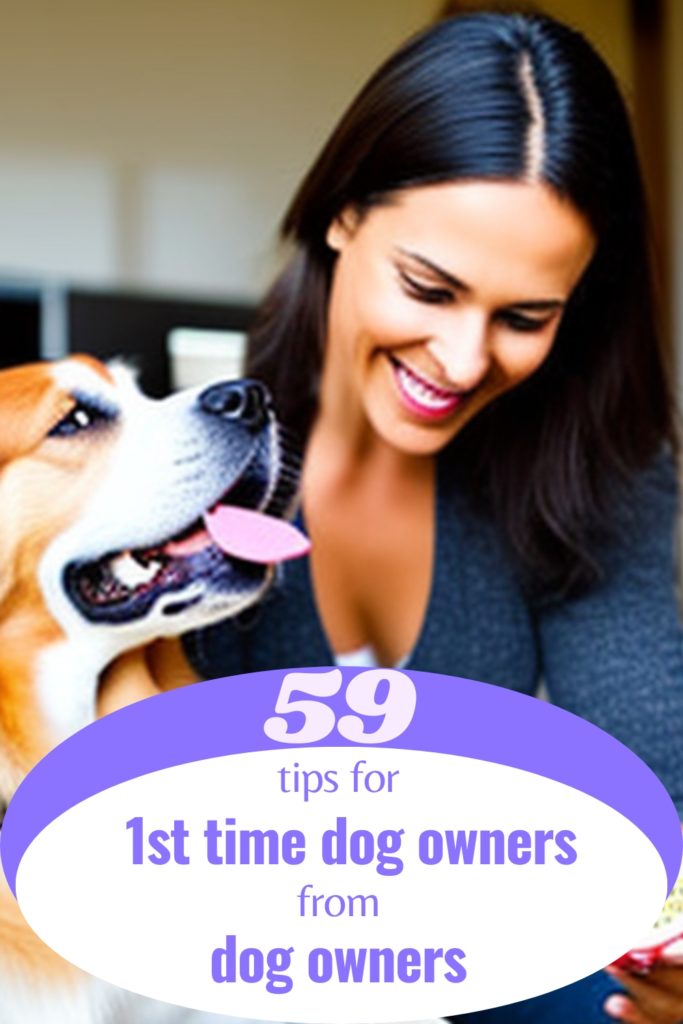
Crate Train
- Crate training is an excellent tool for housebreaking, separation anxiety, or any time you can’t pay attention to your puppy.
- Get your puppy comfortable with his crate by feeding his meals in there.
- Until your puppy is at least 8 months old, he should sleep each night in his crate.
- The crate should be a safe space, but not a punishment.
Crate training isn’t easy, but it is necessary to avoid accidents or destructive tendencies. Any time you can’t watch your puppy and you don’t crate him, you are giving your dog the opportunity to have accidents or destroy things in your home.
Your puppy will not like it at first, but it shouldn’t be a punishment to put your pup in the crate. You should get him comfortable with the crate by feeding him in the crate and prepping him properly before crating him. You can crate him periodically throughout the day, and you should crate him for bed.
Over time, this will become part of his routine and he will enjoy going in there. Some dogs will go into their crate any time they don’t feel like socializing, because it is a safe space for them.
Tips to survive puppyhood

It’s harder than it looks.
- Your puppy will try to eat everything in sight. Truly everything.
- Learn about how puppies learn and experience the world.
- The puppy phase is very emotionally, physically, and mentally exhausting.
- Puppies take a lot of time out of your day to care for and train.
Many people don’t know this, but puppies and dogs explore the world through their mouth. If they see something new they have never seen before, they are most likely to sniff it and then bite it. Puppies will be exponentially worse with this then dogs, partly because of teething. They will want to eat goose poop, shoes, socks, your furniture, your clothes, garbage…literally anything you could possibly imagine. And some things you never would have imagined too.
Until puppies are about 5 months old, they will monopolize your whole life. You will be taking your dog out sometimes every half hour. You won’t be able to take your eyes off of him because he’s likely constantly in trouble. When you are an adult with lots of obligations, possibly a full-time job and a family, this is usually not a time or emotional investment you have time for every single day. Because puppy linear is not linear, it will be exhausting to try so hard and change your schedule entirely to see little to no progress. But the reality is, you probably are making progress. It’s just not what you expected.
Patience is key.
- Puppies are babies or toddlers. They will make mistakes.
- This is the worst stage of dog parenthood, but it will get better.
- Don’t give up or abandon your puppy when it gets tough.
Patience can be hard to have or maintain when you feel like you aren’t making any progress and you don’t know why. It may sound simple, but it’s not. That’s why 21 responders (7.5%) gave that advice.
An 8 week old puppy is still an infant. They will stay babies until about 5-6 months, which is when they turn into adolescents. Have you ever met an adolescent with perfect maturity? Probably not. Though the puppy has a lot to learn, they are not the only ones learning. You are learning too. You have to problem solve through puppyhood in order to get through it, and it’s easy for patience to run thin when you got an undesired outcome.
Keep giving second, third, or fiftieth changes, but don’t give up. The best is yet to come. Puppyhood is the hardest phase, and once it’s over you won’t go back to it (unless you get another puppy). The best thing you can do to stay patient is to refer to some of the other advice of other dog owners: stick to a good routine,
Puppy biting is a literal pain.
- Puppies bite when they play.
- They can be like landsharks with razor teeth when they are badly teething.
- Learn about bite inhibition training.
- Give them a toy when they try to bite your hand.
- Puppy proof your house.
If you have ever watched puppies play, you would see that they constantly bite each other all over. This is completely normal. They learn over time how to bite softly from playing with each other. Inevitably, one of the puppies will bite another a little too hard and it’ll hurt, causing the puppy to yelp. That’s how they will learn that bite was too hard. This is call bite inhibition. Most people suggest training for this by yelping out if you dog ever bites you too hard and go limp.
Training your dog to take a treat gently will teach your dog not to bite when they are excited.
When puppies are teething, their mouths and gums are very sore. Their teeth are small, but razor sharp and can really hurt or cause damage in your home. But they can’t help it. Their gums are so sore that they are seeking relief through chewing, and they’ll gnaw at anything they see. One of the best things you can do is to redirect him to chew an appropriate toy to chew on instead, like a Nylabone chew toy.
Puppy proofing your house is similar to baby proofing your house, except you focus on different things. For example, puppies like to test out new textures, like furniture, pillows, electrical cords, any type of food or drink, etc. It’ll be impossible to fully puppy proof your house. The best you can do is puppy proof rooms within your house and restrict your dog’s access to the rest of the house. If you can’t puppy proof a specific room, don’t let your puppy in there unless you can give him your full attention. Crate training is a great tool to prevent destruction as well.
Housebreaking is hard.
- Lose all sentimental value for your carpets.
- Don’t be surprised if you took your puppy outside to go to the bathroom, and he still potties the moment he walks in your door.
- Keep track of your dog’s bathroom routine – when did he last go to the bathroom, eat, and drink?
Let’s face it – there will be a lot of accidents. You will be doing a lot of cleaning your floors. Buy floor cleaners that remove pet odors because dogs tend to go to the bathroom where they smell urine or feces. On tile floors, a mixture of white vinegar and water will do the trick. This will help remove those odors from your floor to minimize accidents due to smell.
The best thing you can do to ensure successful housebreaking is a consistent routine, even through the night. In the beginning, take your dog out every two hours on the dot. Slowly increase it as you see progress to every three hours in the first month of your pup being home. On top of that, you should take your dog out after every meal, after every nap, and after every play session. It doesn’t sound hard, but it is. It will feel like you are taking your puppy outside every half hour. If you are sharing responsibilities of your puppy, it’s a good idea to keep a schedule next to the door to keep track of your dog’s bowel movements.
Puppy Blues is real.
- Don’t be too hard on yourself and don’t be afraid to ask for help.
- Find a support group or forum.
- Everyone has a different opinion, but the only thing that matters is what works best for you.
Puppy Blues is occurs after you bring home a puppy and you begin to regret getting a dog at all. My belief is that everyone experiences Puppy Blues, but in hindsight they are probably not remembering it because they love their adult dog so much. You will get through it as well. The first step to getting through Puppy Blues is to recognize that you need help. Have a friend or Rover take a dog walk shift for you so you can relax, catch up on chores, or work. Ask for guidance or a brainstorm with friends to troubleshoot a particular problem or behavioral issue.
You can lean on friends, family, or find a Puppy Blues support group to help vent or problem solve. You can find support groups on Facebook, Reddit, or Meetup. But remember: everyone has different opinions on how things should be done. If their worldview or opinions don’t match yours, that’s OK. You have to do what works best for you.
Puppy Blues isn’t a medically diagnosed illness, and it has no cure, but there are effective methods to get through it. First one is to find a support group.
Although it’s really hard, it still goes by too quickly.
- Before you know it, you’ll do will be an adult and you’d miss how cute and soft he was as a puppy.
- Take lots of pictures when your puppy is little and cute, because it’ll go by too fast.
I love this advice. To me, this is further proof that you’ll get through Puppy Blues. Puppies grow up fast, and the puppy stage doesn’t last very long. Even though they are slow to mature, they will begin to look like an adult. They will lose their soft puppy fur. If you have a big dog, they’ll quickly be too big to hold in your arms. Even though your puppy may be a terror at times, one day you’ll look back on miss his puppy face. Take lots of pictures to capture those memories.
Tips on the dog parent lifestyle

Give love and receive love.
54 tips out of the 69 lifestyle advice category were regarding love (78.3%), which is huge. Many people commented that your dog is about to be your best friend, and make sure you give them love. A majority of the comments described:
- Being kind and gentle to your dog.
- Your dog is about to become your whole world.
- Your dog will monopolize your life, your bed, and your couch.
- Get ready for your best friend for life.
- He/she will steal your heart.
- He/she will steal your wife.
- Spent time with them and enjoy it.
- Talk to your dog like they are your baby.
- Treat your dog like a family member.
- Your dog will always love you unconditionally.
Practical tips and suggestions
The remaining 15 tips (22.7%) revolved around tidiness in your house, preventing your dog from destroying your favorite things, and playing with your dog.
- Buy a vacuum.
- Consider getting a second dog so your first dog will have a friend.
- Hide all your socks, shoes, and belongings.
- Buy tennis balls to play with.
Tips on health and wellness

Get pet insurance.
- Get pet insurance to save your wallet for any medical emergencies.
I personally do not use pet insurance and don’t intend on ever signing up for it. I have read some people have had great success in recouping vet costs on occasion, but not always. If you choose to opt into pet insurance, check the premiums against what the insurance will cover. Most insurances today will not cover regular vet visits, and they may not cover every type of emergency either. So read the fine print!
Exercise regularly
- A tired dog is a good dog.
Most dogs need regular exercise. For very young puppies, a walk most likely won’t work. At this point, you are still getting your dog familiar with a leash and a walk may not be a good idea. He’ll be scared. He likely can’t walk very far anyways to actually tire him out. By about four months old, your dog should be fully vaccinated and be leash confident for walks.
If you want to really tired them out, you should let them run freely. You also want to play games like tug or fetch. Mental stimulation will also be exhausting for the dog. Mental stimulation includes training, puzzles, and nose work.
Feed a good diet and keep fresh water out always.
- In the beginning keep your dog’s food pretty simple.
- Over time, you can add in human food like chicken.
Very young puppies are still developing and are prone to upset stomachs. You want to keep their diet as clean as possible. I recommend staying on the same food they were used to before they joined your household. For Ezra, I bought Eukanuba Large Breed Puppy Kibble, because that’s what the breeder fed him. By 3-4 months old, you can start to bring in more types of foods like chicken or low fat cheese.
Your puppy is actively growing and will gain weight, but you want to make sure he isn’t gaining weight too fast and hurting his joints. Your puppy food will have recommendations on how much to give your dog based on his size and age. To avoid a fat pup, limit treats by using meal times to train. This has the added bonus of making your dog work for his food from the get go, which will make training easier over time.
Keep your dog’s ears clean and dry.
- Floppy ears can trap moisture and cause an ear infection
When your dog comes in from a swim, a walk in the rain, or a romp in the snow, you should make sure you towel dry their ears. You want to avoid ear infections or aural hematomas. The signs include scratching at their ears, and shaking their head right before or after scratching. Then they may sniff their paws to try to understand what’s wrong with their ears.
If you notice that behavior, make a visit to the vet to get medicine.
If you need to go to the vet, go to the vet.
- At minimum, your dog should get an annual exam to stay updated on any vaccines and test for any worms or parasites.
Schedule a vet visit within a couple days of bringing the puppy home. This will begin a series of vaccinations for your pup. The sooner you can get through vaccines, the better! Then you can bring him more places without worry. This first visit will also set you up for heartworm and flea/tick prevention. Before you leave the vet’s office, schedule his next visit for his next round of vaccines.
Once you are through vaccinating against Lyme, Parvo, and rabies, you don’t need to visit the vet for a while, unless the dog is sick. At the one year mark, you’ll need to get a new rabies, Lyme and Parvo shot. Some of your vaccinations at this point may become three year vaccinations, while others might stay annual. Be sure to visit at least once a year to prevent any illness.
Conclusion
Dog ownership can be a steep learning curve, especially when you bring home an 8 week old puppy. Sometimes it feels really overwhelming. There is so much to learn about dogs and your specific dog dependent. The reality is, you aren’t necessarily training the dog. You are training and teaching yourself just as much, if not more, than your dog. It can be hard and overwhelming. But don’t forget:
- Focus in the beginning establishing a good routine and train consistently.
- Work on socialization, housebreaking, and crate training.
- It’s going to be hard, and you will get Puppy Blues, but don’t give up.
- It is harder than it looks, but have patience.
- Before long, your puppy will become your best friend.
- Ensure you can afford a pup.
I hope this list of dog tips was helpful. It’s going to be a long road, but don’t worry. I am here to help with a few secrets and evaluation tips to guide you through puppyhood. If you are interested, fill in your email address below and I will email you the secrets.
